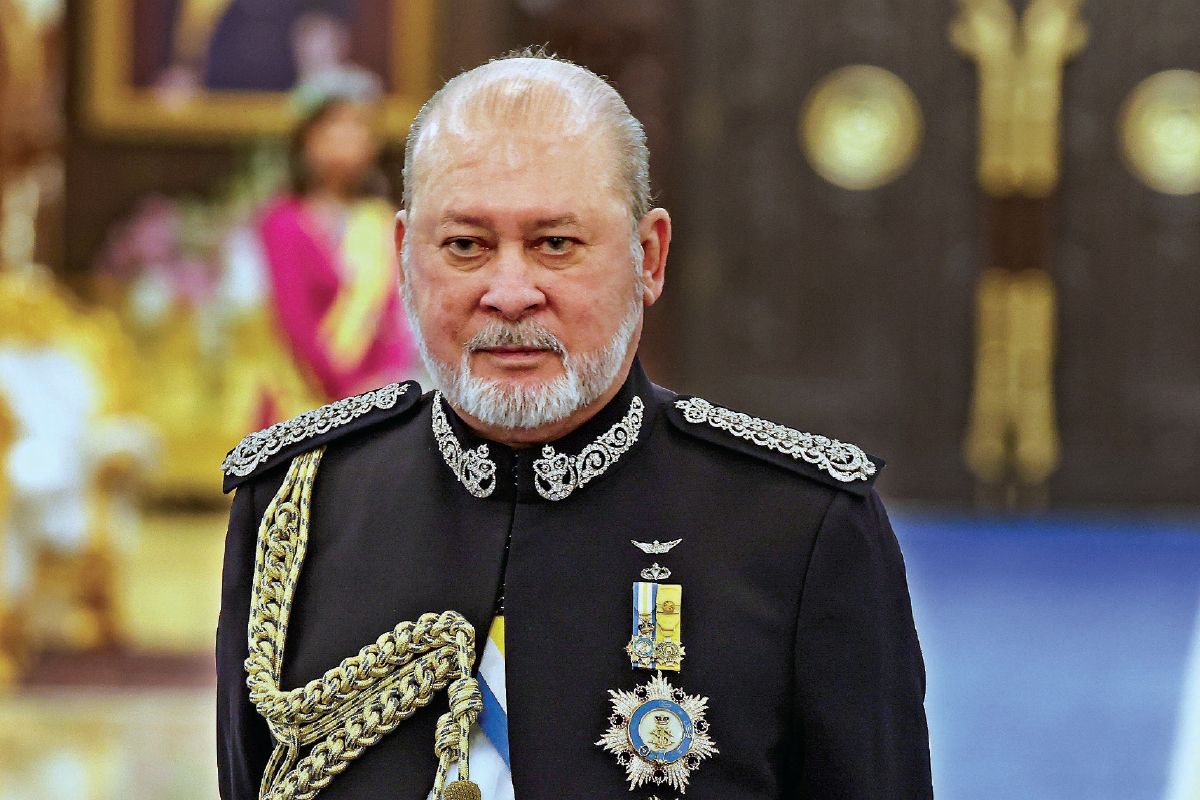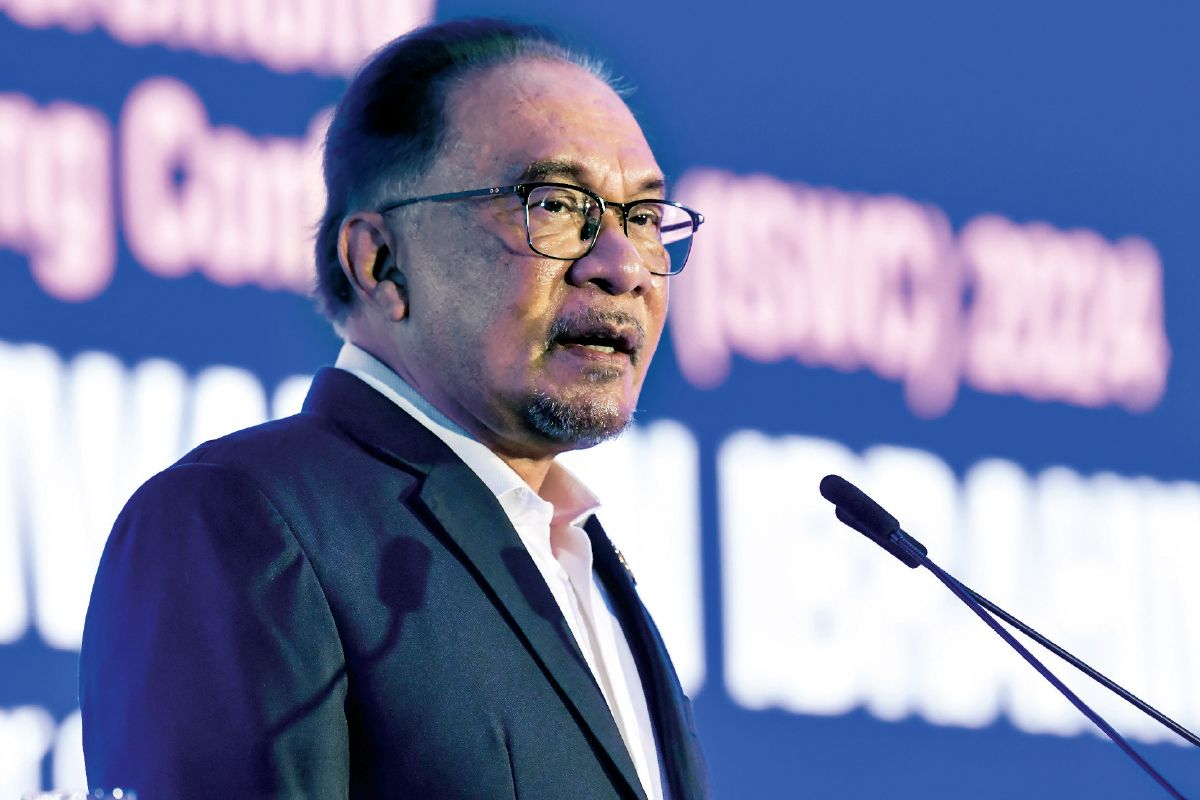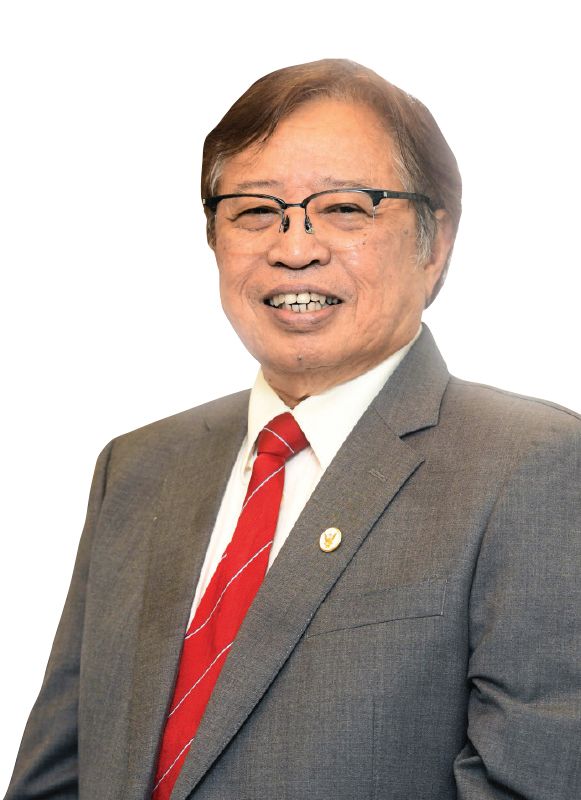This article first appeared in The Edge Malaysia Weekly on December 30, 2024 - January 12, 2025
The year 2024 marks the second year of the unity government, formed after the 15th general election (GE15) was held in late 2022, where no single coalition won enough seats to form a government. It must have taken some deft negotiating skills on the part of the leader of the unity government, Prime Minister Datuk Seri Anwar Ibrahim, to hold on to Putrajaya while maintaining the balance of power.
Datuk Seri Anwar Ibrahim
Prime Minister and Finance Minister
Datuk Seri Anwar Ibrahim began the year on a tentative note amid reports that opposition leaders were trying to bring down his year-old government by allegedly engineering defections among members of parliament in his coalition. The so-called “Dubai Move”, which was said to be hatched in the largest city in the United Arab Emirates, underscores the balancing act that Anwar has had to perform to keep his unity government together.
At end-January, former prime minister Datuk Seri Najib Razak secured a partial pardon for his conviction in the SRC International case, involving misappropriation of RM42 million. From a political viewpoint, the halving of his sentence and reduction of his fine by the Federal Territories Pardons Board raises the possibility of Najib’s eventual return to politics, which may help the government in power to maintain its stability.
As the year drew to a close, the appointment of Tun Musa Aman as the Sabah governor caused quite a stir. Musa, who was the state’s longest-serving chief minister, ruling from 2003 until his defeat in the 2018 state election, faced a battery of charges for corruption and money laundering following his loss but these were dropped by the Attorney-General’s Chambers in 2020. Although the governor’s role is said to be apolitical, Musa’s stature in Sabah Umno will be a strong positive for Anwar’s unity government, in which the party is an important ally. More tellingly, political support from Sabah will be a stabilising force for Anwar as he prepares for the future of his government beyond its first term.
Stability was also a bonus point for the unity government in December when the AG’s Chambers withdrew its appeal against the acquittal of Deputy Prime Minister and Umno president Datuk Seri Ahmad Zahid Hamidi of 40 charges in a foreign visa corruption case.
There is a clear need for Anwar to strengthen his hand while he continues to accommodate the demands by Sarawak and Sabah for the full implementation of the Malaysia Agreement 1963 that is the basis of Malaysia’s formation. Anwar’s government has built confidence in the negotiations, with seven matters out of 11 so far being resolved under his watch. However, it must tread carefully on more complex issues, including maritime borders, oil royalties, stamp duties and the demand for one-third of the parliamentary seats to be allocated to Sabah and Sarawak. Currently, the Gabungan Parti Sarawak coalition contributes 23 seats and the Gabungan Rakyat Sabah coalition contributes six seats to the unity government’s supermajority in the 222-seat parliament.
Although Anwar’s government risks alienating its reformist-minded supporters, it has moved strongly to woo the Malay-Muslim voter base, with a phased pay rise for civil servants and morale-boosting humanitarian support for the besieged Palestinian people, among other well-calibrated measures.
On the strategic front, Malaysia’s application this year to become a BRICS member is calculated to position the country to take advantage of opportunities for economic cooperation with other member states, while it navigates a middle path in the new Cold War that is escalating between the US and China.
Crucially for the country’s economic health, Anwar’s government has shown its commitment to fiscal discipline by committing to reduce the fiscal deficit to 3.8% of gross domestic product in Budget 2025, from an estimated 4.3% in 2024. Moreover, it has stuck to the rollout of its fuel subsidy rationalisation plan, a politically risky step that had been skirted by previous administrations.
Further, there have been no announcements of major new infrastructure developments, apart from a RM10 billion allocation for the Penang LRT project in early 2024. — By Rash Behari Bhattacharjee
Tan Sri Abang Johari Tun Openg
Premier of Sarawak
Tan Sri Abang Johari Tun Openg (or Abang Jo, as he is better known) has emerged as a formidable advocate for Sarawak’s rights provided under the Malaysia Agreement 1963 (MA63) and state laws. His quest as Sarawak premier to reclaim the state’s control over its resources has put him at the forefront of Malaysian political discourse, challenging entrenched federal powers and stirring a national conversation on regional autonomy.
Central to Abang Jo’s agenda has been the quest for Sarawak to take control — via Petroleum Sarawak Bhd (Petros) — of its oil and gas resources. The tension reached a peak this year, with Sarawak officially taking over the role of sole gas distributor in the state. His administration has been vocal about negotiating terms with Petroliam Nasional Bhd (Petronas), particularly for gas distribution agreements. Abang Jo’s assertiveness has occasionally led to friction, leading to talk of a possible legal dispute between the two parties.
There was also tension over the carbon capture, utilisation and storage (CCUS) bill, where Abang Jo reiterated that Sarawak would “call the final shot” on any arrangements related to CCUS within the state’s territory. He even said that the bill, which is scheduled to be tabled in parliament soon, does not apply to Sarawak.
Beyond resource management, Abang Jo has advocated for greater autonomy in education and healthcare. By seeking to decentralise these critical sectors, he aims to tailor policies that address the unique needs of Sarawakians, including promoting English as the official language of communication and education. Abang Jo also declared free tertiary education for all Sarawakians from 2026.
The premier has overseen strategic acquisitions to bolster the state’s economic independence and commercial standing. The state’s acquisition of a significant stake in Affin Bank Bhd (KL:AFFIN) exemplifies this. Also on the agenda are the acquisition of MASwings from Malaysia Aviation Group. Plans for a mega international airport and deep-sea port highlight his commitment to enhancing regional connectivity, with the aim of integrating Sarawak more deeply into the national and international networks.
There is talk of Sarawak seeking control over its spectrum airspace, including by setting up its own telecommunications company.
Abang Jo’s vocal stance on Sarawak’s rights under MA63 has made numerous headlines this year and will likely continue to dominate the news in 2025. — By Isabelle Francis
Save by subscribing to us for your print and/or digital copy.
P/S: The Edge is also available on Apple's App Store and Android's Google Play.
- Sapura Resources sues ex-MD Datuk Shahriman and others for over RM3 mil in damages
- Anwar receives courtesy visit from tech giant Oracle, discusses AI and digital innovation
- Singapore man accused of Nvidia chip fraud wields global connections
- Stocks extend drop, dollar falls on tariff woes
- Trump’s manufacturing dreams clash with business owners’ reality




